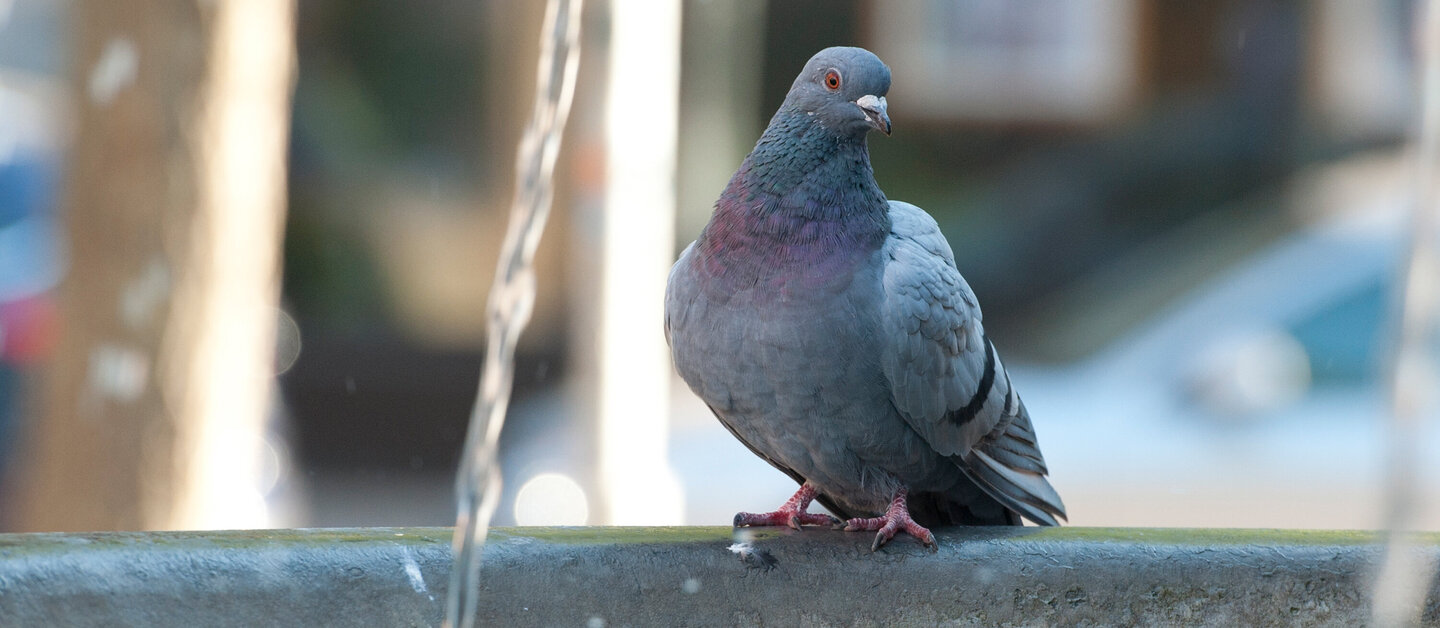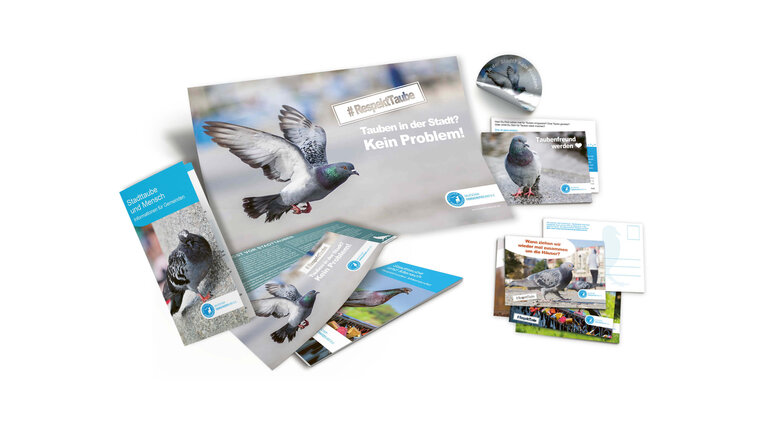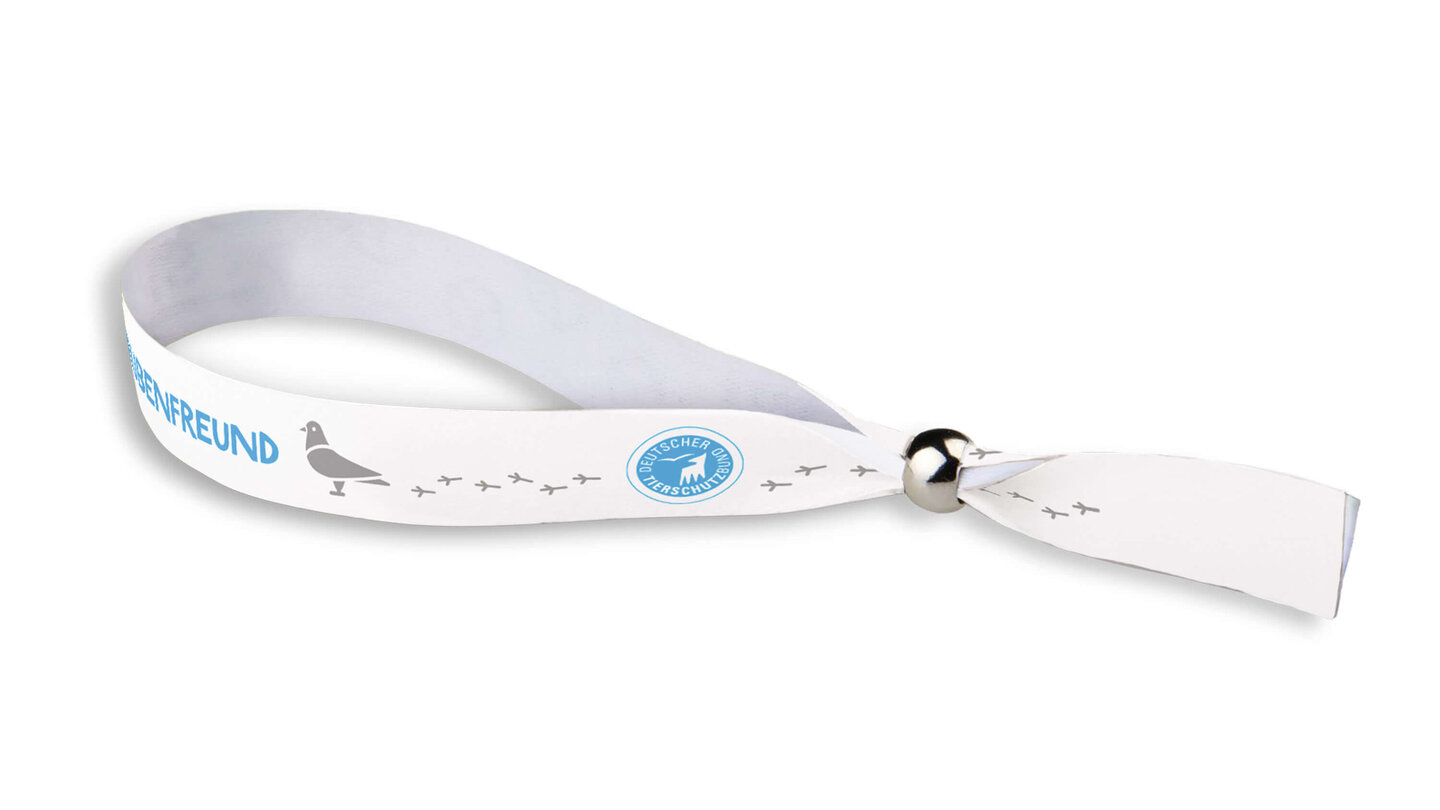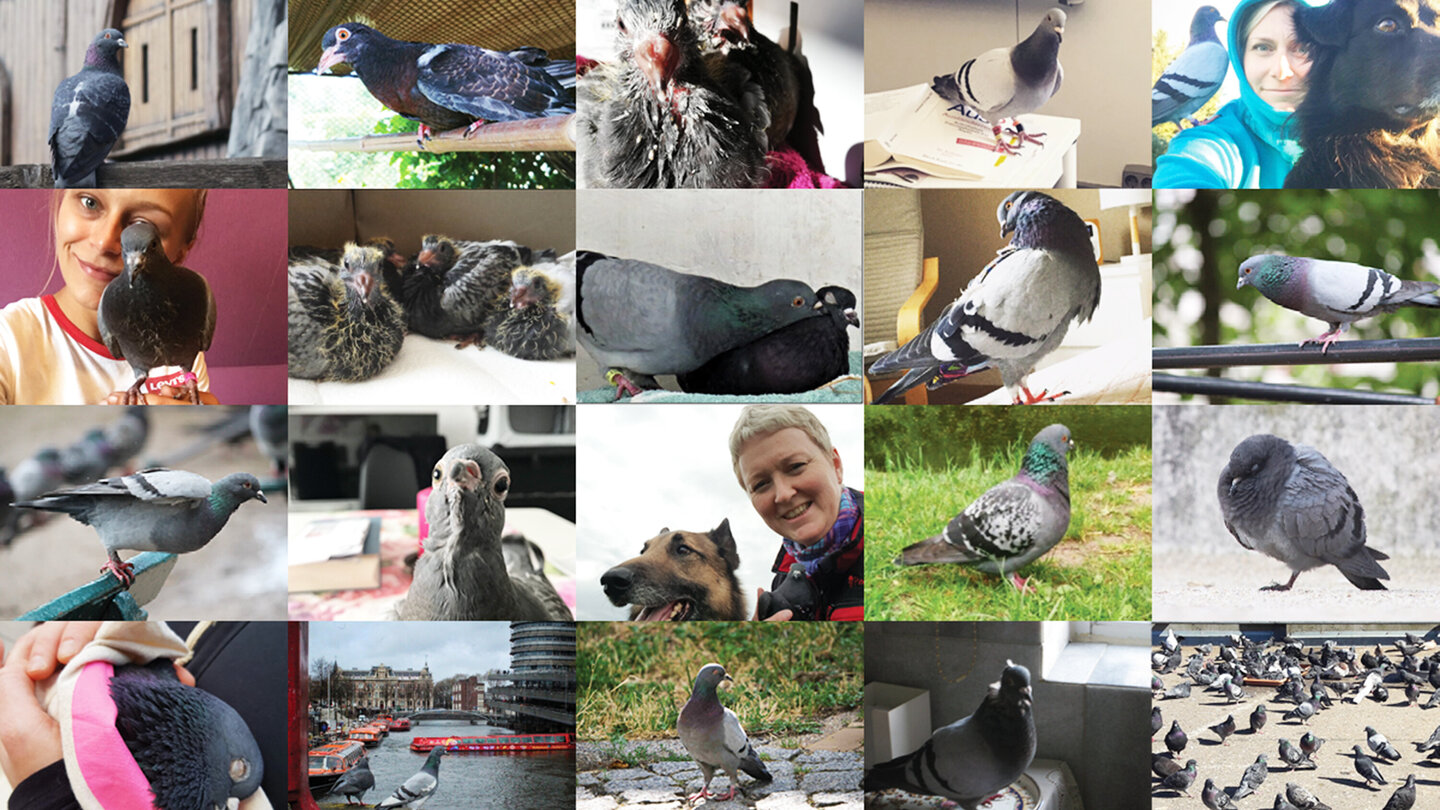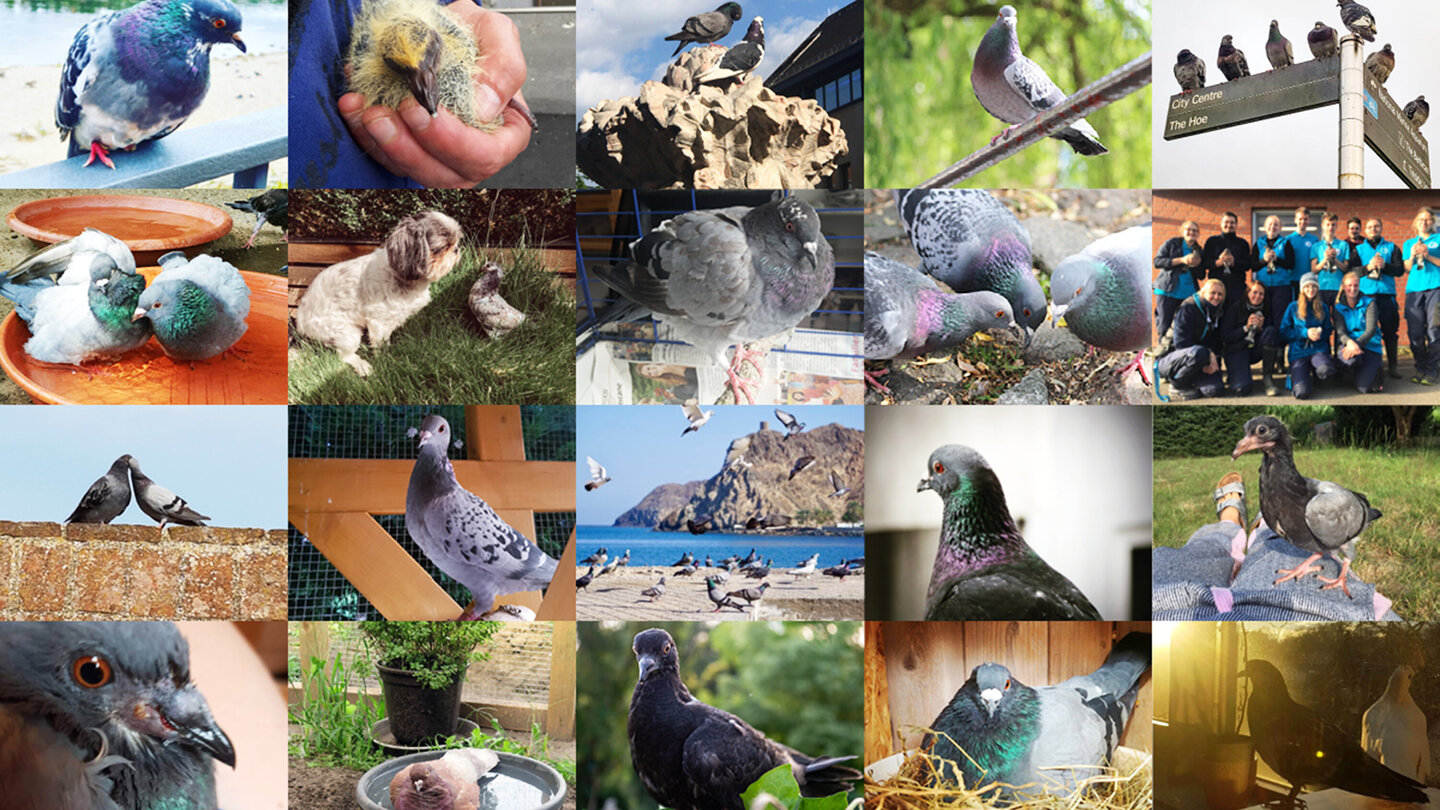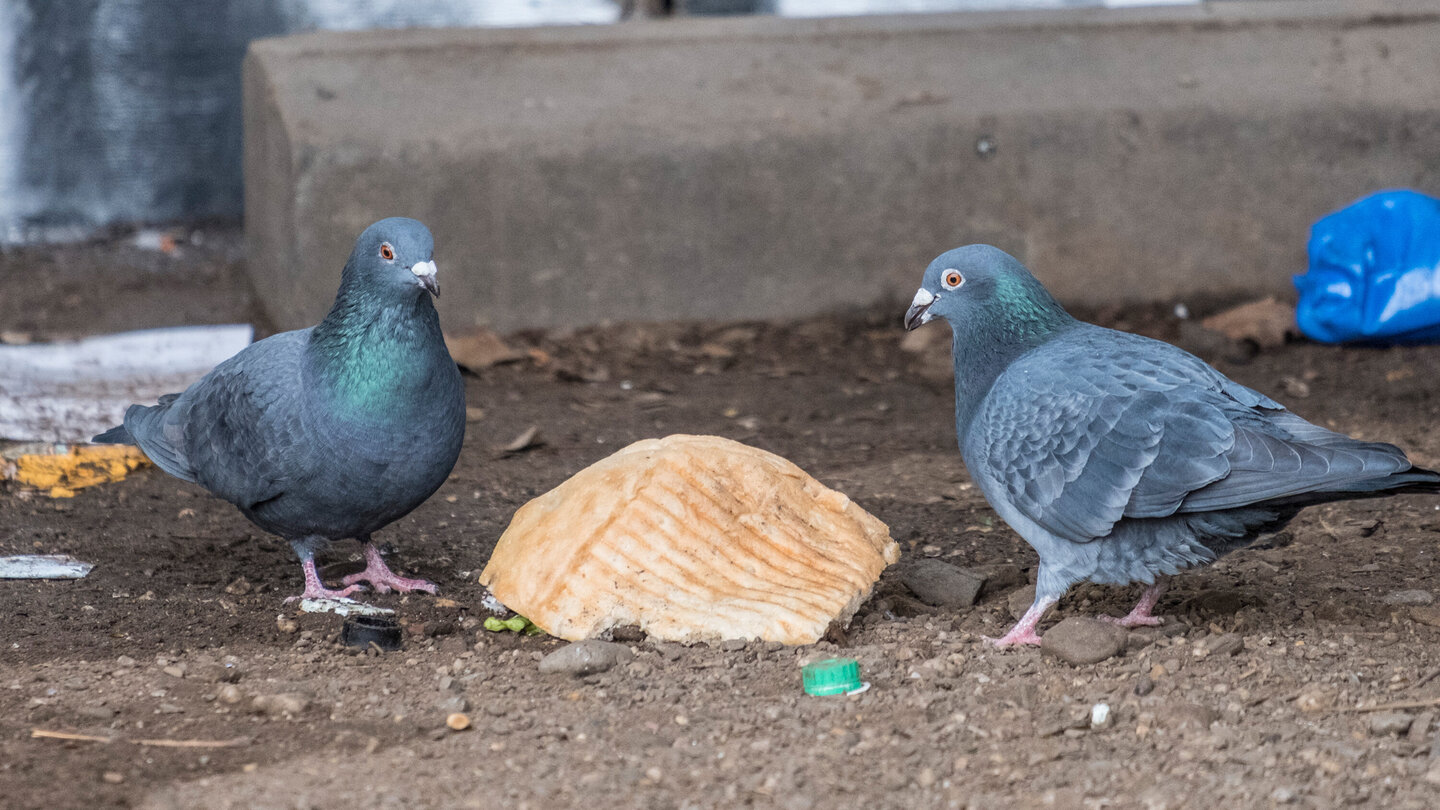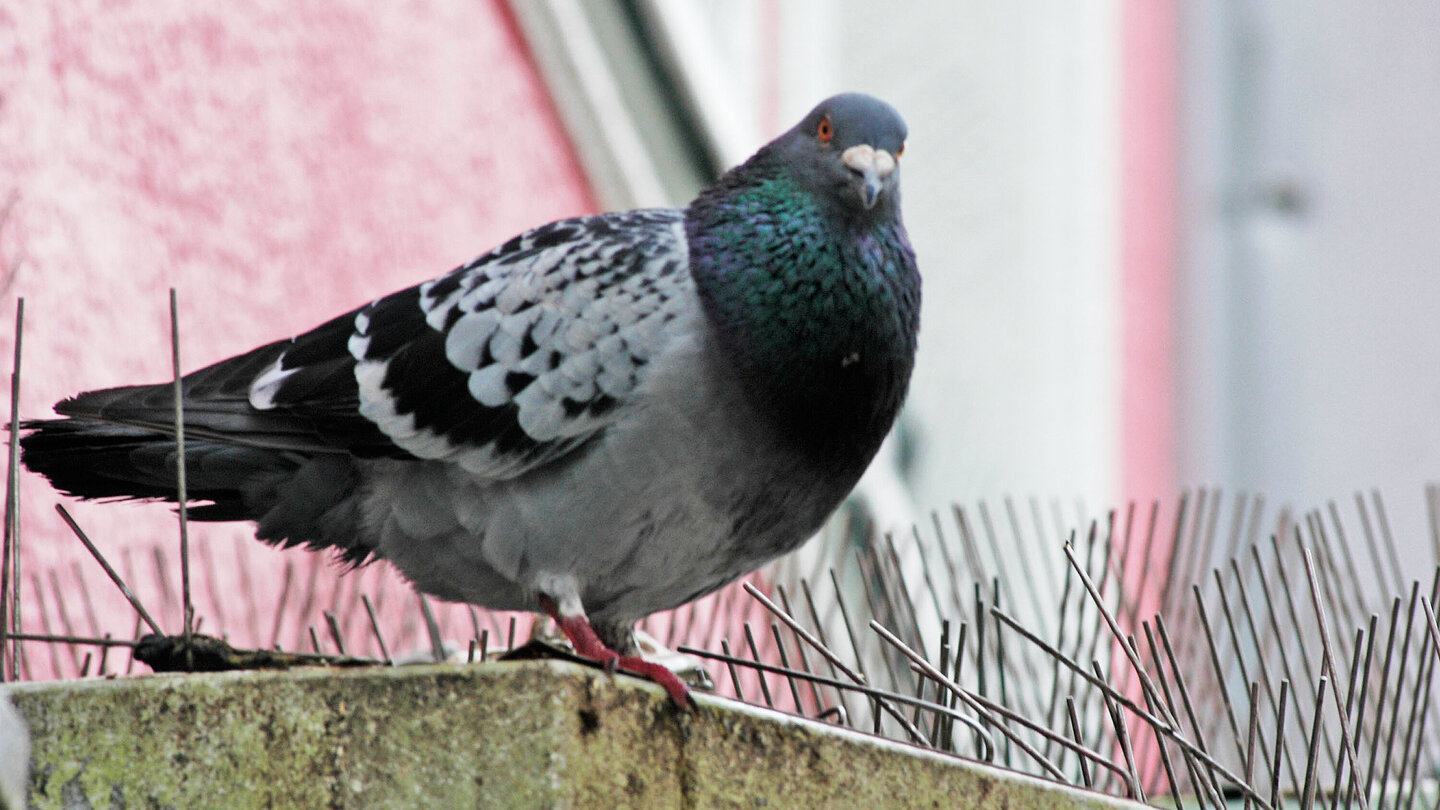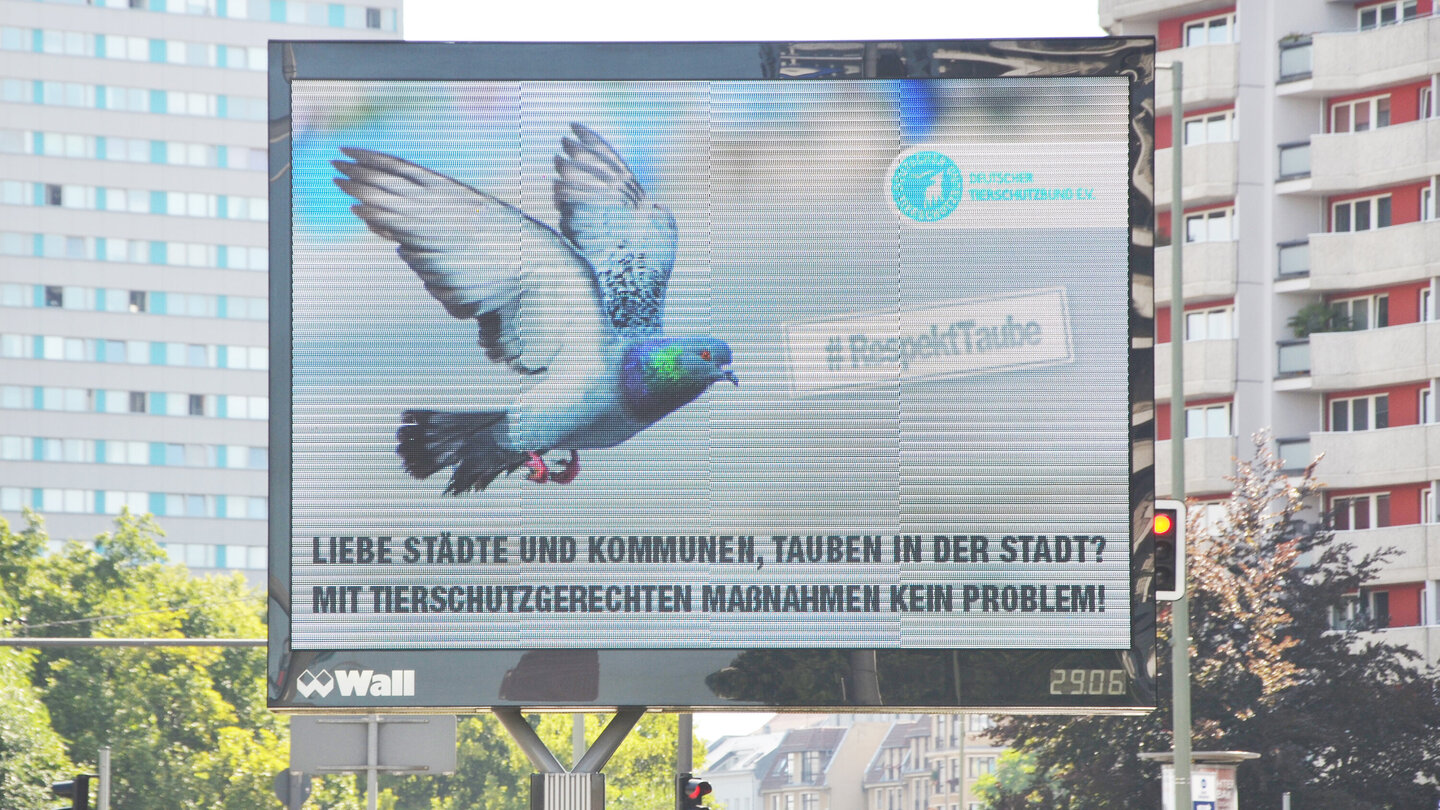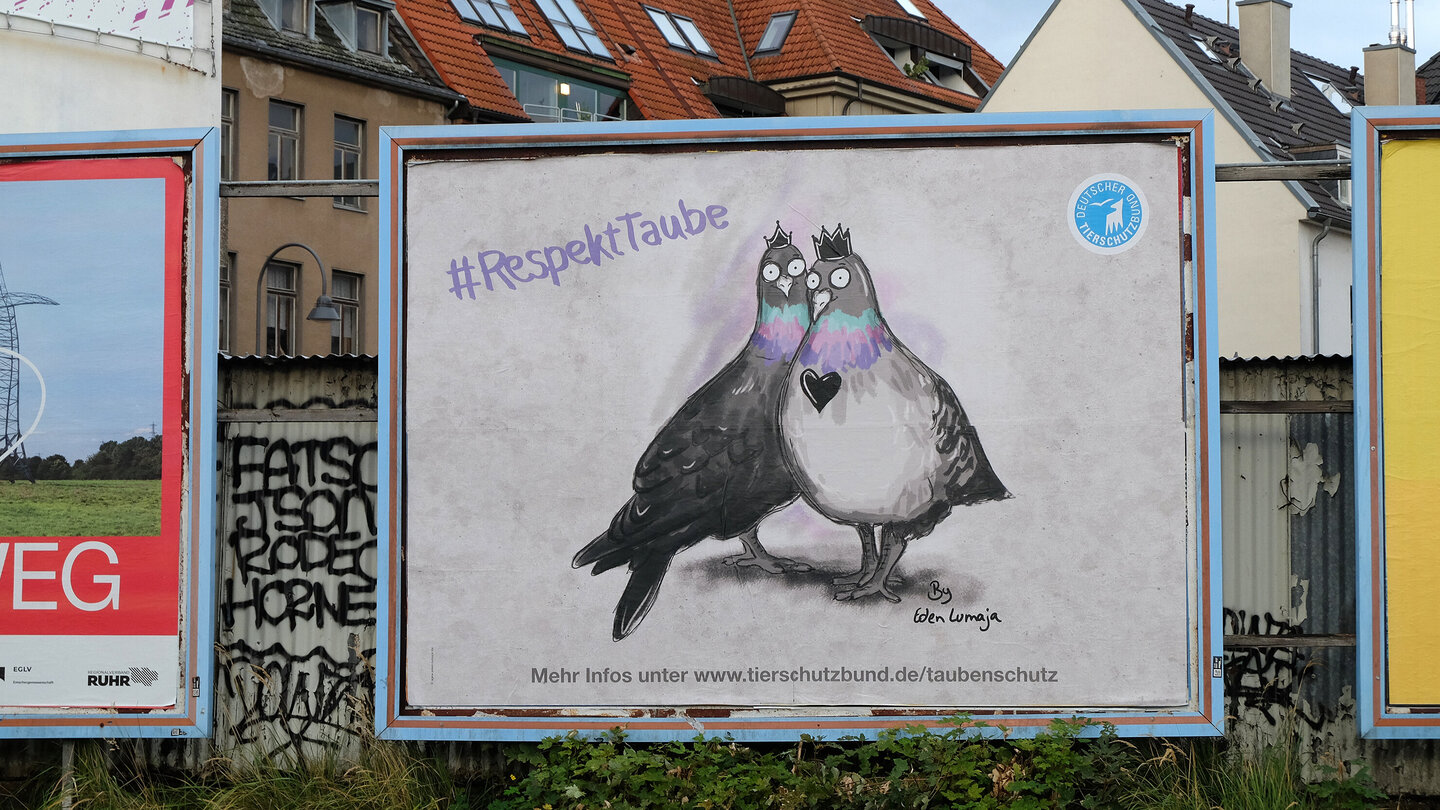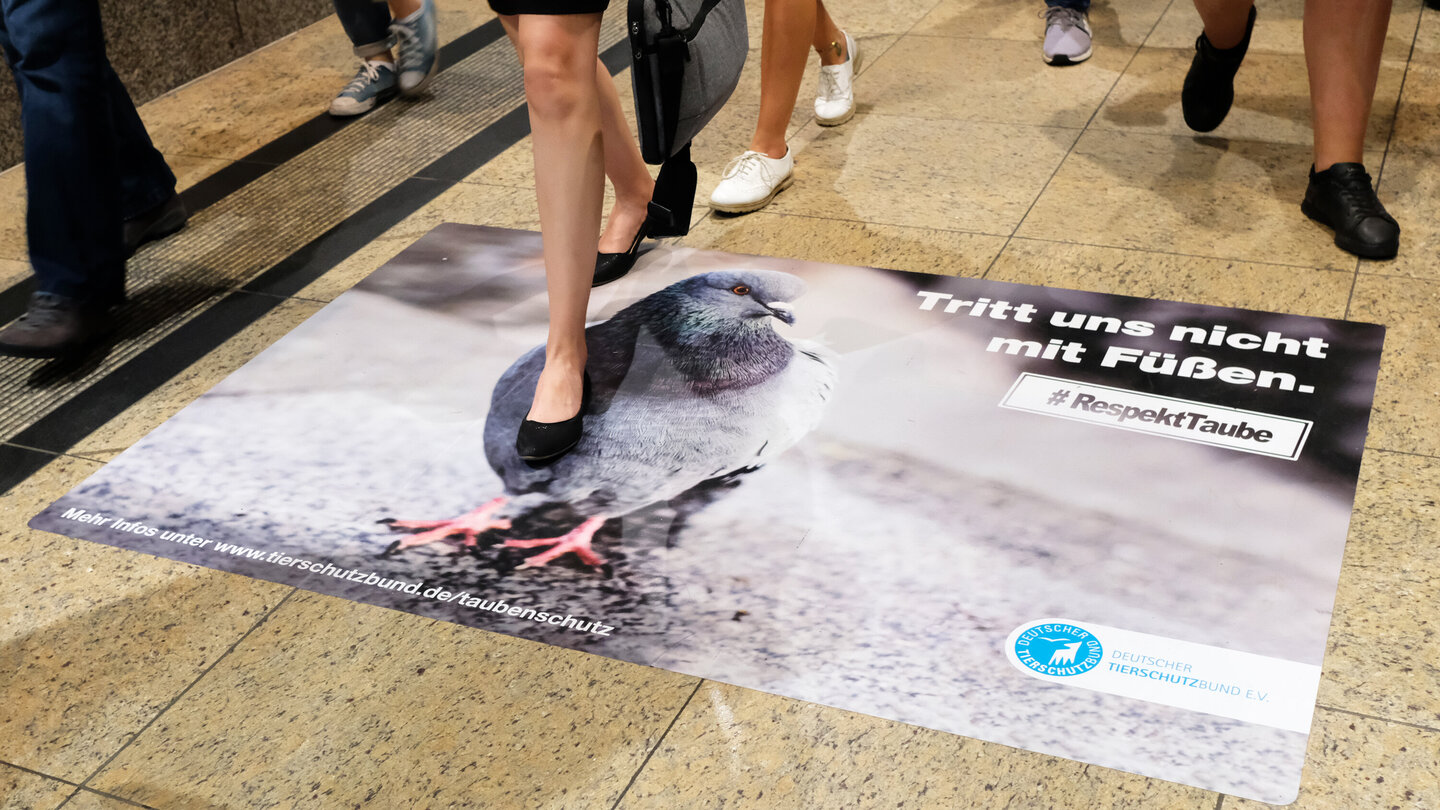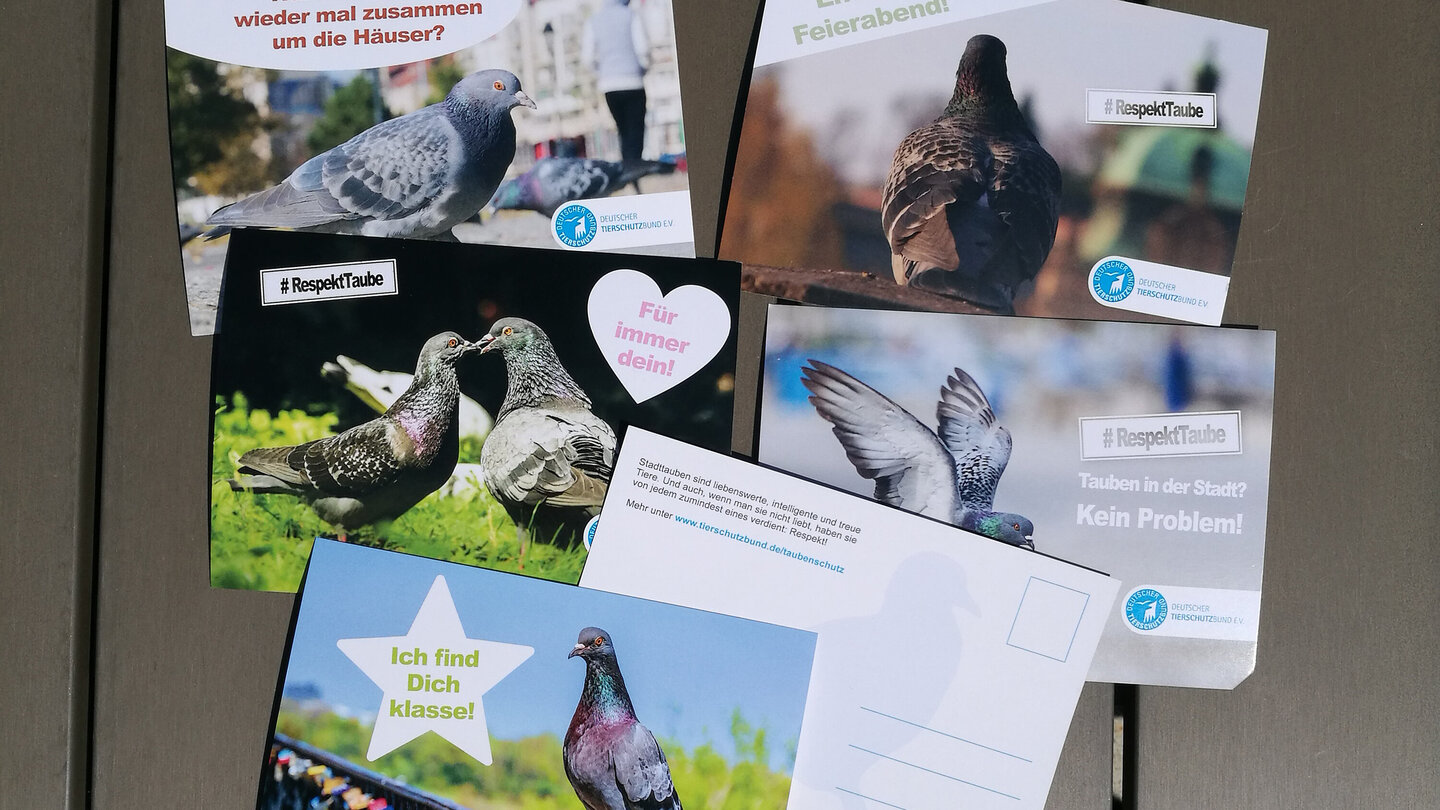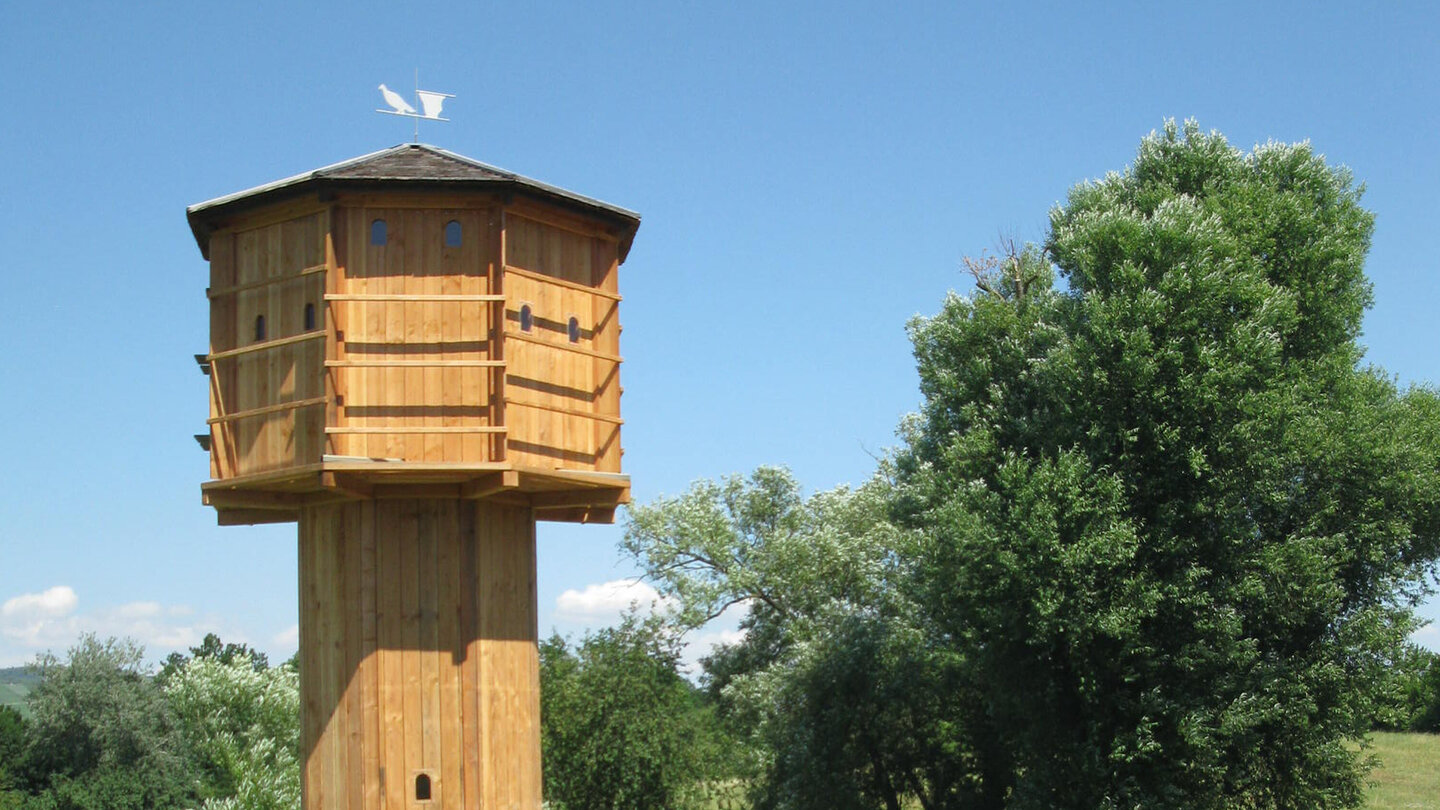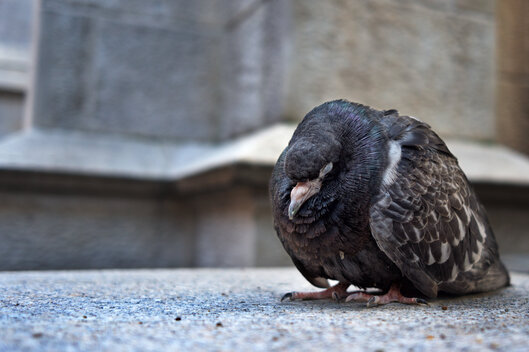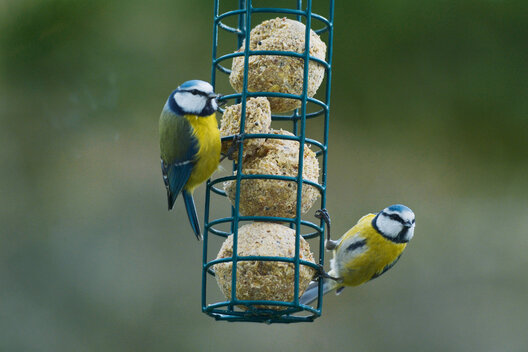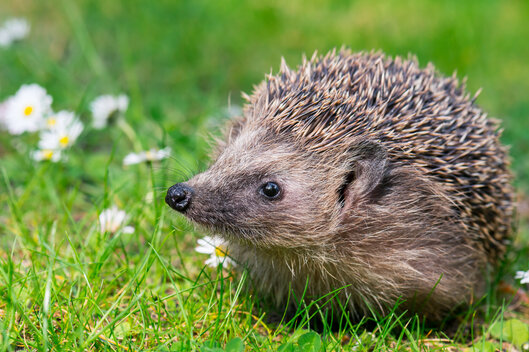#RespektTaube (respect dove)
Urban pigeons don't deserve their bad image. Stop the hate! We want to put an end to nonsensical prejudices and help the animals to a better life. Because pigeons are very lovable and intelligent animals, stand for love and peace and are loyal. Even if you don't love them, they deserve one thing from everyone: respect.
Helping pigeons
- Don't be afraid of diseases. The health risk posed by pigeons is no greater than that posed by other ornamental and wild birds or pets.
- Please do not feed uncontrolled. The supplementary food often lacks important nutrients and irregular feeding also causes problems for the animals.
- Get to know pigeons. Pigeons stand for love and peace. They are loyal animals and stay together with their partner for their entire lives. They are very intelligent and can even recognize human faces.
- No one likes to be kicked or chased away. The life of pigeons in the city is already difficult enough. We shouldn't make it any harder for them.
- Pigeon houses and towers like the Augsburg model help to regulate the pigeon population in an animal-friendly way. They can be fed appropriately and their health can be monitored. The animals can nest in peace and their eggs can be replaced with dummies. This results in a smaller, healthy urban pigeon population. Our guide and checklist show you how to do it (available in German only).
- Helping pigeons in need. If you see a sick or injured pigeon, it is best to ask a city pigeon or animal welfare organization how and whether the animal can be helped.
Order info package
Would you like to find out more about pigeons or help us to educate your community about urban pigeons? We will be happy to send you our free information package with flyers, postcards, stickers, posters and lots of information about urban pigeons (available in German only). Simply send us your address using our pigeon form.
Action: Become a pigeon friend
Are you a pigeon lover? For example, have you ever helped a sick or injured pigeon or informed your environment that pigeons are wonderful animals? Then tell us your story. As a thank you, you will receive a wristband with which you can show everyone that you are a pigeon friend. Together we'll set an example that pigeons deserve respect!
Simply use our participation form.
Please only send us what we are allowed to publish, including your copyright, which we will of course be happy to include. We look forward to receiving your stories and pictures! Detailed information can be found in our conditions of participation.
This is what the German Animal Welfare Federation demands
- We appeal to everyone to respect pigeons and not to torture them. Please help us to improve the image of urban pigeons and educate those around you about nonsensical prejudices.
- We demand that affected cities and municipalities take the already proven animal welfare measures to ensure peaceful coexistence between humans and animals. A reduction in the pigeon population and a reduction in animal suffering can only be achieved in the medium term through species-appropriate pigeon houses.
We have also sent our appeal in writing to the presidents of the German Association of Cities, the German Association of Districts and the German Association of Towns and Municipalities, as well as to many mayors throughout Germany.
FAQ on pigeon protection
City pigeons are descendants of domestic pigeons that have flown away and have been bred from the wild rock pigeon for various purposes over the centuries (e.g. as carrier pigeons). As they are descendants of domestic pigeons, their lives are closely linked to those of humans. The ability of these animals to adapt perfectly to the human habitat, the inappropriate food supply (e.g. food waste) and the ability to reproduce throughout the year (a consequence of breeding) have led to an explosive increase in the population in cities.
The fear of disease is unfounded: The health risk posed by pigeons is no greater than that posed by other ornamental and wild birds or pets. Although urban pigeons are often said to be the cause of the disease ornithosis (a notifiable disease), no urban pigeon has been identified as the alleged cause for years. The disease of salmonellosis in humans cannot be traced back to urban pigeons either.
Please do not feed the pigeons uncontrollably. In the city, pigeons feed mainly on waste and on wheat, rice, birdseed and maize spread by humans. However, the spread feed often lacks important vitamins, minerals and proteins. Feeding at irregular times also causes problems: Often both pigeon parents are then at the feeding place at the same time and may wait quite a long time for their feeders. The young in the nest are inevitably neglected. If the food is concentrated in one place, aggressive and large animals (usually males) crowd out the less vigorous females and young, so that they often cannot take in enough food.
Many pigeons suffer from malnutrition due to the wrong food, as they cannot find suitable food or sufficient drinking water in the city. There is also a lack of suitable breeding opportunities in cities. The animals are often sick or malnourished. This can also be attributed to the density stress caused by overpopulation. However, the city can help here by providing pigeon houses and towers in which they are fed appropriately, their health is monitored and in which they can nest in peace, but their eggs can be exchanged for dummies. This results in a smaller, healthy urban pigeon population. The urban pigeons stay away from hotspots and most of the pigeon droppings are collected in the lofts, keeping the city cleaner. A win-win situation for all sides.
It's quite simple: accept the pigeon as your urban roommate. You don't necessarily have to love them, but treat them with respect. Don't torment it and don't kick it. If you want to do more than that: Talk to your city about an animal-friendly solution.
Download material(Available in German only)
- Brochure "Urban pigeons and humans"
- FAQ on the topic of pigeon protection
- Guidelines for municipalities on the introduction of animal welfare-oriented urban pigeon management
- Checklist for municipalities on the introduction of animal welfare-oriented urban pigeon management
- Keeping pigeons in animal shelters

